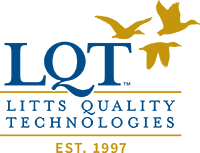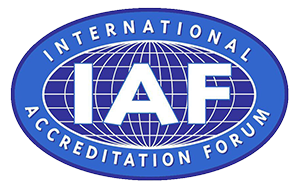 Food Industry Related Quality Systems:
Food Industry Related Quality Systems:
Have you been contacted by a long time customer or potential customer and advised that if you do not implement a Food Safety Quality System you will no longer be an approved supplier or be allowed to provide them with a quotation? Are you not even sure what impact the imposed Standard will have on your organization? Don’t panic. LQT, Inc. can provide you with an overview of the standard requirements and what it means and help you determine the best approach for implementing the system within your organization.
LQT, Inc. can provide you with the consulting support you need to implement a Food Safety Quality System and become compliant with or 3rd party registered to that standard.
We can provide you with assistance in implementing the following:
Safe Quality Food Institute (SQFI) System
Safe Quality Food Institute (SQFI) Safe Quality Foods Registration Certificate for “SQF Code ~ A HACCP- Based Supplier Assurance Code for the Food Manufacturing and Distributing Industries”:
The SQF Code is recognized by the Global Food Safety Initiative (GFSI) as a standard that meets its benchmark requirements. Level 3 exceeds the GFSI benchmark documents.
This standard provides the framework for implementing a SQFI system. It defines requirements in the clauses of the standard. The standard is based upon the “Process Approach”. Whether your “product” is manufacturing or distribution related, this system can provide structure and aid in bringing or strengthening safe quality food discipline within your organization.
We will help you understand the requirements, how to interpret the requirements and provide you with consulting support to develop and implement the system within your organization.
The SQF Code implementation process would consist of the development of the required documentation. The applicability of any current site documentation would be reviewed and updated during this process. Once these documents are finalized, the designated responsible process owner for each procedure would then provide training to employees who would be involved in that process.
A kickoff meeting would be held with the SQF Code implementation management team before the process begins. At this meeting, each clause of the standard will be reviewed and the team selects employees who will be the process owners. The process owner is responsible for soliciting employees who are internal customers and suppliers for that process to help develop the related procedure. These employees will then attend the procedure development meetings. Once the documents are developed, this team is responsible for training the employees.
Internal System Auditors will be trained in the requirements of the SQF Code standard and system auditing techniques. Once the training is completed, they will perform audits of the system to determine compliance and effectiveness of the implementation of the system.
All employees would attend an SQF Code awareness session to become knowledgeable of the standard requirements, their responsibilities and what to expect when the registrar conducts the registration audit.
We are involved from initial inquiry stage to becoming registered to the standard. This includes but is not limited to;
- Facilitating each procedure / process draft development session.
- Facilitating each procedure / process final review session.
- Coordinating the selection and development of work instructions as necessary.
- Providing training assistance to employees who will conduct the training of their procedures / processes.
- Conducting Internal System Auditor SQF Code Training.
- Participating in the initial Internal System Audit.
- Providing employee Awareness Training Sessions.
- Providing input to assure compliance with the SQF Code standard and,
- Assisting in the selection of the registrar.
If you are not sure how your current formal or informal system complies with the standard, we can provide you with a gap analysis audit. This audit can be used as a planning guide to implementing the necessary improvements required to be in conformance to this standard.
AIB International
AIB International is committed to protecting the safety of the global food supply chain.
AIB International has completed an update of four of its 11 Consolidated Standards for Inspection. Regulatory developments, including the US Food and Drug Administration Food Safety Modernization Act, and other industry best practices impacting the food industry worldwide, have necessitated the updating process. The new requirements of the first four Standards took effect January 1, 2013.
The first four Standards in the rollout are:
-
- Prerequisite and Food Safety Programs
- Food Contact Packaging Manufacturing Facilities
- Food Distribution Centers
- Beverage Facilities
We will help you understand the requirements, how to interpret the requirements and provide you with consulting support to develop and implement the system within your organization.
The AIB International implementation process would consist of the development of the required documentation. The applicability of any current site documentation would be reviewed and updated during this process. Once these documents are finalized, the designated responsible process owner for each procedure would then provide training to employees who would be involved in that process.
A kickoff meeting would be held with the AIB International implementation management team before the process begins. At this meeting, each clause of the standard will be reviewed and the team selects employees who will be the process owners. The process owner is responsible for soliciting employees who are internal customers and suppliers for that process to help develop the related procedure. These employees will then attend the procedure development meetings. Once the documents are developed, this team is responsible for training the employees.
Internal System Auditors will be trained in the requirements of the relevant AIB International standard and system auditing techniques. Once the training is completed, they will perform audits of the system to determine compliance and effectiveness of the implementation of the system.
All employees would attend an awareness session to become knowledgeable of the relevant standard requirements, their responsibilities and what to expect when the registrar conducts the registration audit.
We are involved from initial inquiry stage to becoming registered to the standard. This includes but is not limited to;
- Facilitating each procedure / process draft development session.
- Facilitating each procedure / process final review session.
- Coordinating the selection and development of work instructions as necessary.
- Providing training assistance to employees who will conduct the training of their procedures / processes.
- Conducting Internal System Auditor Training.
- Participating in the initial Internal System Audit.
- Providing employee Awareness Training Sessions.
- Providing input to assure compliance with the AIB International standard and,
- Assisting in the selection of the registrar.
If you are not sure how your current formal or informal system complies with the standard, we can provide you with a gap analysis audit. This audit can be used as a planning guide to implementing the necessary improvements required to be in conformance to this standard




